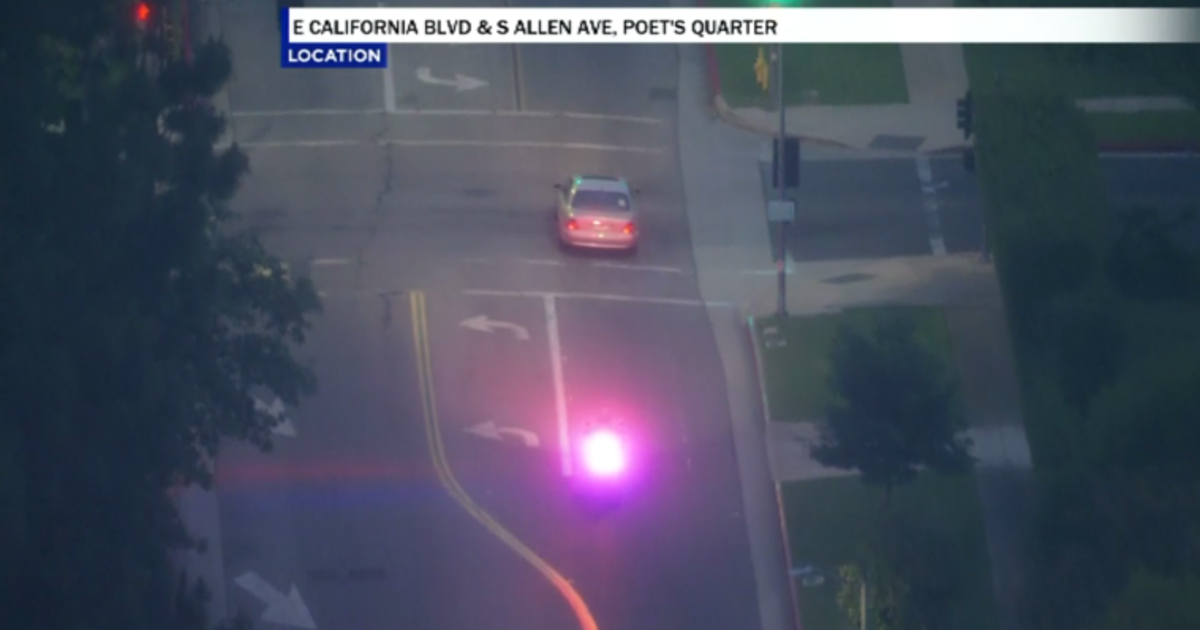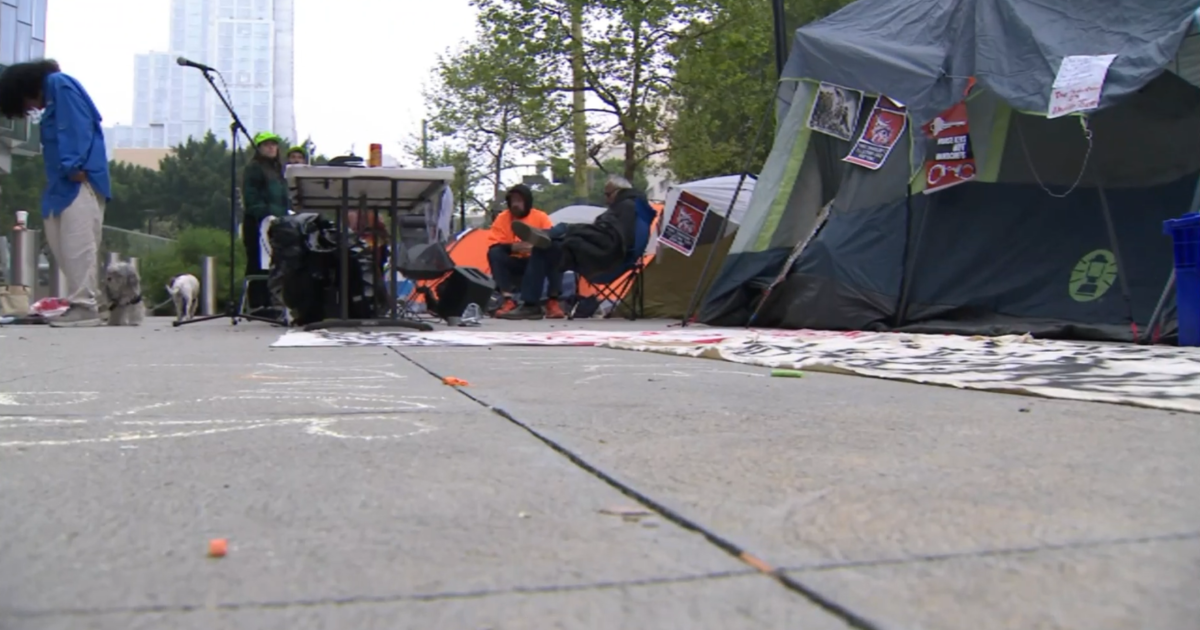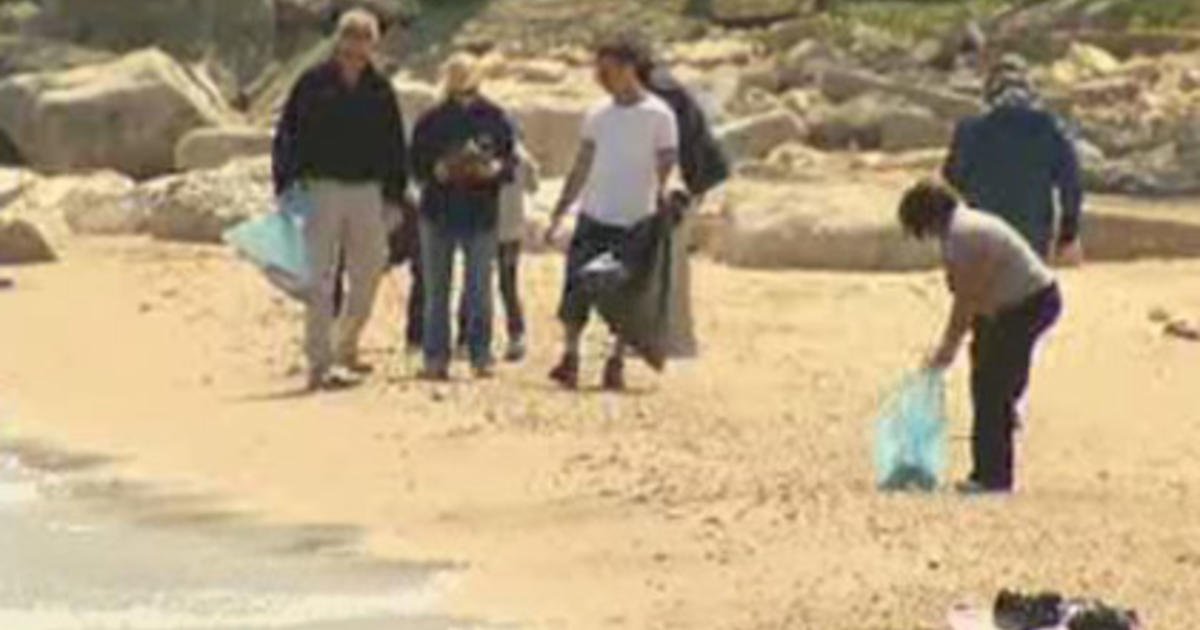Activists Challenge State Law Over Proposed Downtown Football Stadium
LOS ANGELES (CBS) — Environmental activists Thursday filed suit challenging a state law that limits the time legal challenges can be made to the environmental review of a proposed $1.5 billion football stadium and convention center hall in downtown Los Angeles.
The complaint was filed in Los Angeles Superior Court by the Play Fair at Farmers Field Coalition and four individuals: Pete Ares, Steve Richardson, Karl Manheim and Gary Williams.
"To be known as Farmers Field, this massive project will greatly affect the lives of people living downtown, in Pico Union and South Los Angeles as the likely adverse effects include increased traffic congestion, respiratory ailments and housing displacement," according to the lawsuit.
Senate Bill 292, which was signed by Gov. Jerry Brown in September, imposes a 175-day time limit on lawsuits challenging the project. It also mandates that lawsuits filed within the allowed time bypass the Los Angeles Superior Court system and be sent directly to the 2nd District Court of Appeal.
The stadium developer, Anschutz Entertainment Group, today described the measure as "common-sense legislation intended to put people back to work during these difficult times and fully protect and expand the public's participation in the environmental process."
But activists disagreed.
"This project will have a huge impact on this city and my community," said Ares, a 61-year-old South Los Angeles resident who lives with his son and daughter about 1 1/2 miles from the proposed stadium.
"I've lived in this community for over 50 years, and I've seen how rapidly it is changing," Ares said. "This stadium will affect parking, housing prices, traffic, air quality and so much more. We should be taking as much time and giving residents as many opportunities as possible to ensure that we protect the rights of those who will be impacted by the project."
Richardson, born and raised in downtown Los Angeles, lives just over a mile from the proposed stadium site and is a community organizer for the Los Angeles Community Action Network, the suit states. Mannheim and Williams are professors at Loyola Law School and have taught constitutional law and civil rights litigation, respectively, the suit states.
When the legislation was passed last year, AEG President Tim Leiweke insisted the protection was necessary to shield the company from lawsuits filed by competitors who might try to delay the project. Leiweke said he wants to have the stadium open for the 2016 NFL season.
Brown said he supported the legislation because it would fast-track the creation of jobs.
"Projects like Farmers Field can create thousands of jobs during a tough economic time, so it is imperative for the state to cut the red tape that could delay projects like this for years," Brown said.
Attorneys for the Play Fair group contend, however, that the legislation violates two sections of the state Constitution that give jurisdiction to the Superior Court and prohibit special legislation when there are general laws in place governing a project.
"This bill is blatantly unconstitutional," attorney Dan Stormer said. "It is an attempted end run around the constitution."
The AEG proposal envisions a 72,000-seat stadium being built adjacent to Staples Center. The project would require the demolition and rebuilding of a portion of the Los Angeles Convention Center.
The city Planning Department in April released a 1,750-page draft environmental impact report, with thousands more pages of appendices, analyzing the project's predicted effects and listing efforts that AEG says it would take to limit negative impacts.
The city Planning Commission is scheduled to begin its review of the document on Sept. 13. The City Council's Ad Hoc Committee on Downtown Stadium and Convention Center Renovation and the full council must also sign off on the environmental review.
The report predicts an estimated 19,500 new car trips downtown for game days, although AEG executives have said they would work to encourage fans to use alternative means of getting to the stadium.
The Southland has not had an NFL team for more than 17 years.
The Los Angeles Raiders played at Los Angeles Memorial Coliseum from 1982-1994, when owner Al Davis returned the team to Oakland. The Los Angeles Rams played in the Coliseum from 1946-1979. The team then played in what was then known as Anaheim Stadium from 1980-1994 before moving to St. Louis following the 1994 season.
Leiweke has said that approval of the environmental review, possibly by the end of this year or beginning of 2013, will allow the company to show the NFL there is strong enough local commitment to warrant a professional football franchise being awarded to Los Angeles. The stadium project cannot move forward without a commitment for a team from the NFL.
(©2012 CBS Local Media, a division of CBS Radio Inc. All Rights Reserved. This material may not be published, broadcast, rewritten, or redistributed. Wire services contributed to this report.)



